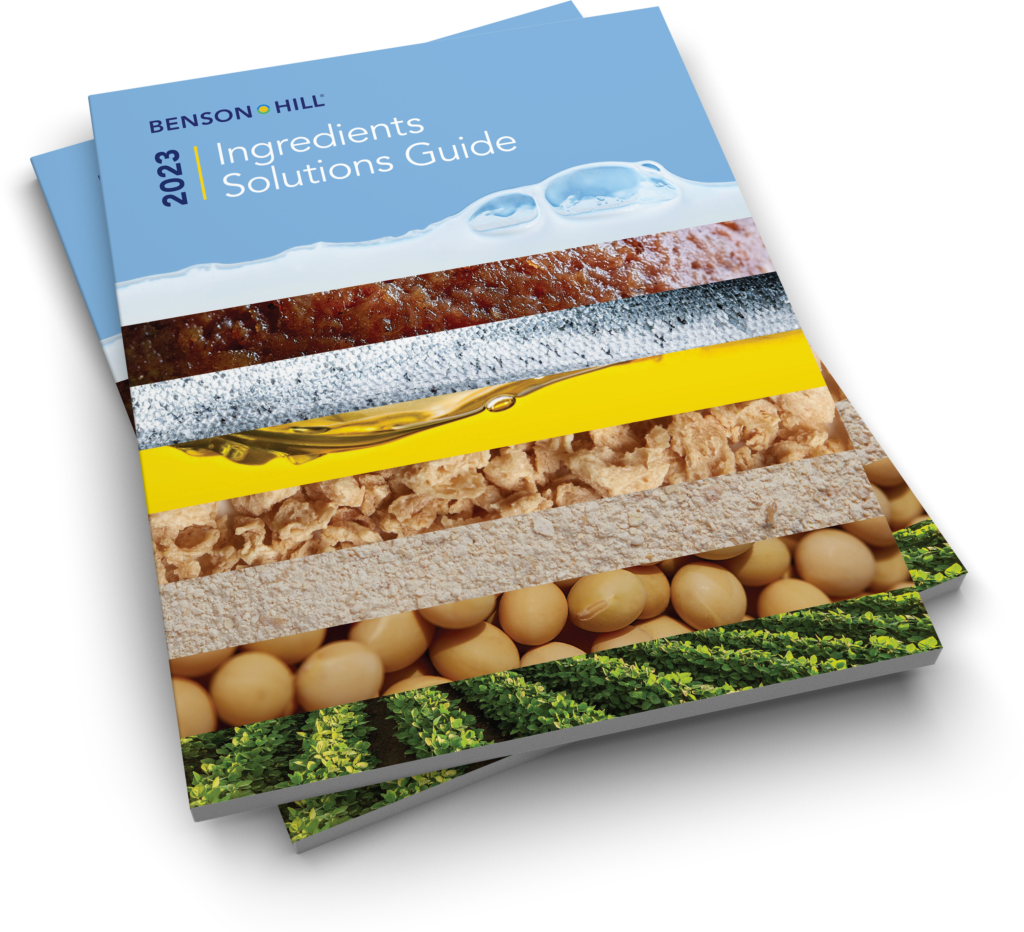Plant-based Foods
Plant-based protein and heart-healthy oils made for consumers
Our soy protein ingredients are traceable, US-grown and non-GMO. They have 20% higher protein levels than typical commodity ingredients. Our soybean oil has 75%+ oleic acid levels and 20% less saturated fat than typical commodity soybean oils.
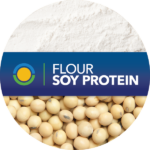
Ultra-high protein (UHP) soy flour — With 60% protein, our flour is a more sustainable and cost-effective alternative to commodity SPC, with significant sustainability benefits1.
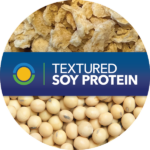
Ultra-high protein (UHP) textured soy flour — the same nutritional and sustainability1 benefits as our soy flour, along with great texture, moisture retention and water binding.
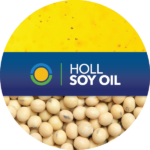
Plant-based ingredients made for consumers
Our revolutionary non-GMO soy protein ingredient portfolio is made for consumers.
Designed to deliver an authentic meat-like experience, our ingredients give consumers the great eating experience they expect from plant-based food.
And because they save significant amounts of energy and water in processing, they’re also made for our planet.
Benefits in a broad range of plant-based goods
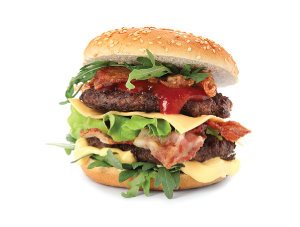
Burgers
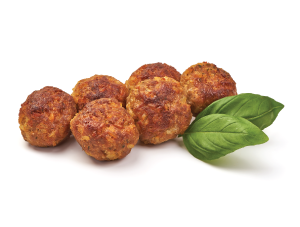
Meatballs

Nuggets
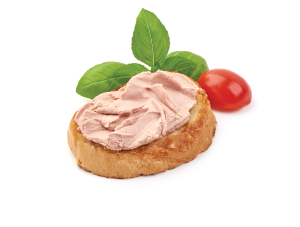
Patés

Schnitzels

Sausages
Learn more about our approach to ESG
Our latest Environmental, Social and Governance Report shows our progress in empowering people, assessing our impact and establishing governance at all levels.


Our closed-loop solution values American farmers and secures supply
We’ve built a closed-loop solution around our location at the heart of agricultural America. We incentivize our network of farmer partners to grow beans with a high protein density and we process these beans at our soy crush facilities in Iowa and Indiana.
A Benson Hill Innovation

* When used as a replacment in oils. Supportive but not conclusive evidence suggests that daily consumption of about 1 ½ tablespoons (20 grams) of oils containing high levels of oleic acid, may reduce the risk of coronary heart disease. To achieve this possible benefit, oleic acid-containing oils should replace fats and oils higher in saturated fat and not increase the total number of calories you eat in a day. One serving of [x] oil provides [x] grams of oleic acid (which is [x] grams of monounsaturated fatty acid.1. Needs up to 70% less water and up to 50% less CO2e to produce than SPC. On a per kilogram of protein basis, based on preliminary Life Cycle Assessment results conducted by Blonk Consultants (April 2021). 2. Compared to expeller-pressed high oleic canola and sunflower oil based on preliminary LCA results from Blonk Consultants based on economic allocation and industry averages.
